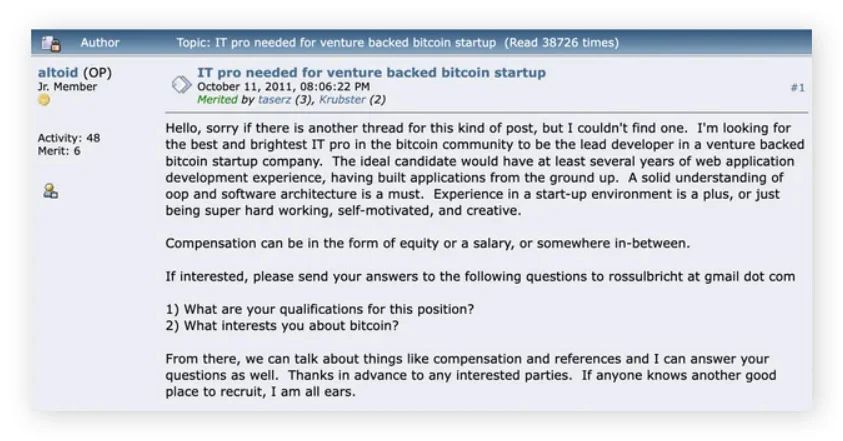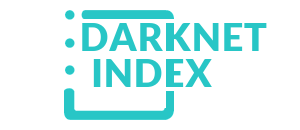The darknet, also known as the dark web, is a concealed section of the internet that's inaccessible via standard search engines. You can only access it using special software, settings, or authorization. This area comprises websites and content that are purposely kept hidden from public view.
Accessing darknet requires using Tor Browser, a special web browser that routes your internet traffic through a global network of relays managed by volunteers. This way, it becomes very difficult to trace which websites you're visiting, and these sites won't know where you are located.
When visiting the dark web, use a secure browser like Tor, do not reveal any of your personal information, and don't open suspicious files or links to stay safe.
The Darknet is often utilized for secure communication, discreet information or file sharing, anonymous research without identity exposure, and occasionally for engaging in illicit activities. It is also recognized for hosting underground black markets(darknet markets), whistleblowing platforms, and discussion boards that champion freedom of speech.
While accessing Darknet Markets themselves is typically not against the law in most places, engaging with illicit goods within them is generally considered a crime. On the other hand, some people might visit Darknet Markets for lawful purposes such as research, journalistic work, or simply to explore online communities. It's essential to know the local laws regarding online activities, and be cautious when using these platforms to avoid any potential issues.
The First Darknet Market: the Silk Road Market
The Silk Road darknet market was an anonymous internet marketplace that operated from January 2011 to October 2013. It could be accessed through encrypted Darknet browsers such as Tor and was notorious for facilitating illegal activities through the use of cryptocurrency. It was also one of the early examples of Bitcoin being used in real-world transactions.
Silk Road demonstrated the potential for secure and anonymous transactions based on blockchain technology and solidified the value of cryptocurrency. Prior to its existence, Bitcoin was seen as more of a novelty, famously being used for the purchase of 2 pizzas. However, after Silk Road gained traction, Bitcoin's value soared to $266 per coin and the marketplace itself became a $200 million enterprise.
The Silk Road darknet market, named after the historical trade route that connected different cultures, was not only a financial endeavor but also a reflection of the founder's philosophical ideals. Created by Ross Ulbricht, also known as "Dread Pirate Roberts," the website aimed to emulate the ethos of the ancient Silk Road in bringing people together through commerce. Unfortunately, Ulbricht's venture ultimately failed.
Ross Ulbricht, an engineering student at Penn State University with a passion for libertarian economic theory, drew inspiration from his favorite book, Alongside Night, to establish the Silk Road platform. By utilizing the Tor web browser and cryptocurrency, Ulbricht was able to create a decentralized marketplace where users could engage in anonymous transactions.
The first sign of Silk Road occurred when Ulbricht, under the pseudonym "altoid," shared a link to the website on a magic mushroom forum in January 2011. His brief post simply stated, "I came across this website called Silk Road..."

In order to attract more attention, he posted anonymously on Bitcoin forums discussing the workings of Silk Road, how to use Tor, and how to convert cash into Bitcoins. His trial revealed that he also promoted "safer" drug use on the platform. However, the Silk Road's operation was short-lived as it was shut down by the FBI on October 1, 2013, leading to Ulbricht's arrest, conviction, and imprisonment.
What products were available for purchase on the Silk Road Darknet Market?
With over 200 product categories, drugs accounted for 70% of the approximately 10,000 items available for sale on Silk Road. Despite a policy against harmful or fraudulent items, products like malware, hacked accounts, and hacking services found their way onto the platform. While guns and weapons were occasionally traded, contract killing services were reportedly never officially offered on Silk Road.
Some examples of what was sold on the Silk Road darknet market:
- Illegal narcotics
- Controlled prescription drugs
- Books
- Digital goods such as malware, hacked online accounts, and pirated media
- Adult content
- Forged driver’s licenses and passports
- Services such as computer hacking or cyberstalking
- Performance enhancing drugs
- Weapons
Silk Road made an attempt to restrict the sale of items that assist in cybercrime. Nowadays, on replica Silk Road websites on the Darknet, users are able to purchase private information, compromised passwords, financial information, and other illicit goods. Educate yourself on ATM and credit card fraud as well as the methods hackers use to crack passwords to safeguard against these and other online risks.
How did the Silk Road darknet market work?
The Silk Road darknet market operated using Tor, a browser that conceals user identities by sending encrypted requests through multiple servers. When a user visited the Silk Road website, the request would pass through several servers before reaching the site. Darknet browsers, like Tor, use .onion addresses, which resemble the layers of an onion due to the multiple server connections. The Silk Road's Darknet link was tydgcecykixpbu6uz.onion.
Transactions on Silk Road were conducted using Bitcoin, requiring users to exchange cash for Silk Road Bitcoin before making purchases. The process was likened to exchanging cash for tokens at an arcade, with all tokens looking the same to maintain anonymity. However, a public ledger called a blockchain kept track of transactions. It ensured vendors knew when Bitcoin had been transferred.
Bitcoin was the main cryptocurrency on Silk Road at the time. But, now there are many cryptocurrencies. This sparked discussions about the best cryptocurrency exchanges. If you're considering entering the world of crypto, research if Bitcoin is secure. Also, see if platforms like Coinbase offer safe crypto exchanges during market volatility.
What happened to Silk Road darknet market?
The US government seized and closed down Silk Road in October 2013, leading to the arrest of founder-owner Ross Ulbricht. Shortly after, a similar website known as Silk Road 2.0 emerged, but it was also shut down within a year during Operation Onymous.
Following its launch in early 2011, Silk Road quickly gained popularity. A Gawker report on June 1, 2011, brought the Silk Road marketplace to public attention. It made politicians like US Senator Chuck Schumer take notice and got federal agents involved.
The FBI began tracking a user named “altoid” who was promoting Silk Road. Ulbricht's accidental disclosure of his gmail account was while posing as “altoid” on a forum on October 11, 2011. It led to authorities identifying and arresting him.

Ulbricht's LinkedIn profile mentioned Silk Road. He used his real photograph for Silk Road server rental. He also allegedly attempted to hire an undercover agent for an assassination. Ulbricht was eventually located at an internet cafe in San Francisco, where he logged in as Dread Pirate Roberts.
However, Ulbricht was not the sole individual involved in Silk Road. Richard Bates was Ulbricht's top programmer. Roger Thomas Clark, also known as "Mongoose" or "Variety Jones," was Ulbricht's mentor. Both were captured. Bates cooperated with authorities. He testified against Ulbricht in 2015. Clark got a 20-year prison sentence in 2023.
Ulbricht was found guilty of all seven charges brought against him in 2015 and has exhausted all legal avenues for appeal. He is currently serving a life sentence without the possibility of parole.
What happened to the confiscated Bitcoins?
After the closure of Silk Road, 144,000 Bitcoins associated with the marketplace were confiscated. In 2015, $13.5 million worth of these Bitcoins were auctioned off. In November 2021, an additional 50,000 Bitcoins stolen from Silk Road in 2012 were seized and later sold by the US government for $215.5 million in 2023.
What replaced Silk Road?
Dark marketplaces, such as Agora, AlphaBay, Dream Market, and Hydra, have replaced Silk Road and Silk Road 2.0. However, they have since shut down. Police have infiltrated and shut down many darknet markets. This led to the shutdown of markets that once replaced Silk Road.
Silk Road 2.0, founded by Blake Benthall aka "Defcon", was shut down by the FBI and Europol after just one year of operation. The site had over 13,000 listings for controlled substances and mirrored many of the original Silk Road categories.
Silk Road 3 Reloaded emerged after the closure of Silk Road 2.0. But it was essentially a rebranding of an existing Darknet market called Diabolus Market that tried to capitalize on the Silk Road name.
Agora, operational from 2013 to 2015, managed to evade the crackdown that led to the downfall of Silk Road 2.0 and other darknet markets. At its peak, Agora was the largest darknet market in the world before closing down in 2015.
Dream Market, established in late 2013, closed its doors in April 2019 after a prolific vendor was arrested with $500,000 in cryptocurrency. The marketplace reportedly generated up to $168 million in annual revenue.
Hydra was a Russian darknet market. It became the biggest and longest-running darknet market. It had 17 million users and made $5 billion in revenue over 8 years. It was shut down by German authorities in 2022 and was infamous for facilitating a documented case of a Darknet contract killing.
AlphaBay, in operation from 2014 to 2017, had over 400,000 users and 300,000 items listed before being shut down. AlphaBay accepted cryptocurrencies other than Bitcoin, such as Monero and Ethereum. It was also part of Operation Bayonet. It briefly reemerged in 2021 before going dark again.
Other Darknet marketplaces
Archetyp, DrugHub, and MGM Grand are currently the nearest darknet markets to the Silk Road. However, these markets may have vanished when you read this. Darknet markets often appear and disappear in what's called an "exit scam." Along with the cryptocurrency and data belonging to their customers.
There are also smaller Darknet markets where cybercriminals can exchange sensitive data for fraudulent activities. It is advisable to routinely monitor the Darknet for any compromised information that could potentially lead to identity theft.
